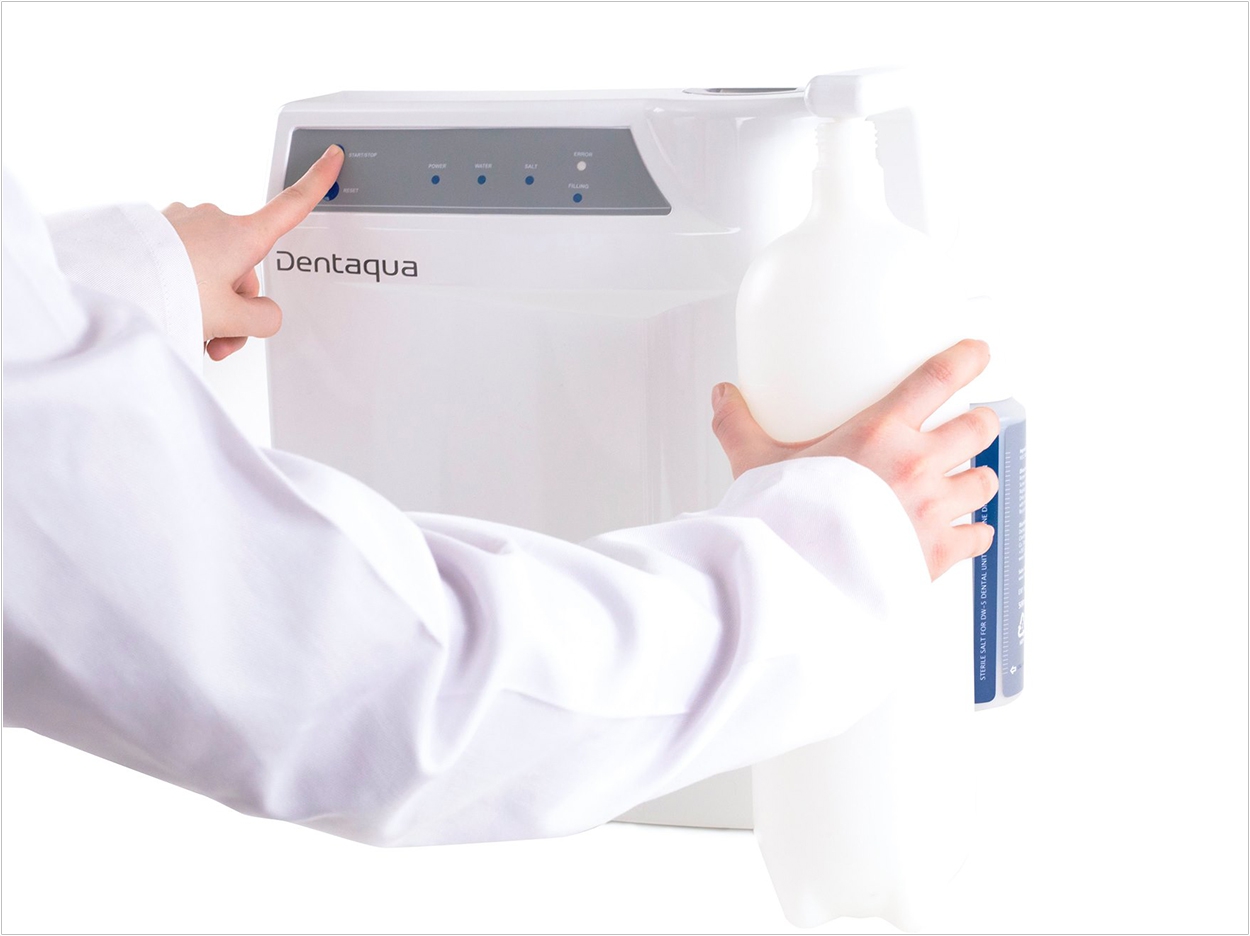
The Dentaqua Complete Dental Disinfection System, which fits on a countertop, produces super-oxidized hypochlorous acid, an all-natural, nontoxic disinfectant that destroys all known microbes including biofilm, according to the company. It offers a higher disinfectant standard while saving dental practices an average of $1,000 per operatory annually, Dentaqua said.
Dental practices also can produce their own low-cost disinfectant that can be applied in several areas of the clinic, including surface disinfection, environmental fogging, dental impression disinfection, and dental waterline disinfection, according to the company. The system eliminates the need for traditional chemical disinfectants and single-use plastic wipes as well, Dentaqua said.
The device is designed and manufactured in Ireland and available throughout the United States via Dentaqua’s network of sales representatives. With each Dentaqua system, dentists receive a complimentary handheld fogger designed to enable the quick disinfection of surgeries in between patient visits.
Dentists also receive high-quality, reusable spray bottles that, when filled with Dentaqua disinfectant, can be used in combination with more sustainable paper towels to eliminate the purchasing of costly and environmentally unsustainable single-use wipes, the company said.
The plug-and-play Dentaqua device has one-touch operation that fills dental water bottles for continuous dental waterline disinfection. Separately, at the touch of a button, the system produces a disinfectant solution for use in a range of applications.
Dentaqua also provides a data trail on the use of the system, which allows dental practices to clearly evidence disinfection production and use, the company said. Further, Dentaqua said, dentists can eliminate procurement hassle and stock shortages by producing their own disinfectant with the device. According to the company, additional benefits include:
- Practices can generate their own low-cost, all-natural disinfectant using just water and a quality-controlled sale electrolyte with no worries about chemical exposure.
- Dentaqua-produced water eliminates waterline biofilm for ultra-clean dental water and reduced risks associated with dental aerosols.
- App-based automatic record-keeping minimizes the need for manual record keeping and auto-orders consumable salt so practices don’t run out.
- The system produces virtually no residual salt and is non-corrosive to dental equipment in long-term clinical settings.
- The system has been independently studied and proven to be non-toxic to human epithelial cells, and it does not affect composite bond strength.
“The new technology has proven very successful with dentists with the equivalent of 3,000+ operatories now using the technology. The positive feedback from customers has been huge,” said Dentaqua president Ed O’Reilly.
“The fact that it eliminates single-use wipes and the fact that you don’t have to worry about purchasing and monitoring chemicals is a real benefit. You simply produce your own highly effective, eco-friendly disinfectant, as needed, at the touch of a button,” he said.
“The environmental benefit of eliminating large volumes of single-use plastic wipes going to landfill is a very attractive proposition for most dentists. It enables dental practices to legitimately market their eco-friendly credentials to their patients,” O’Reilly said.
Studies looking into the ability of antimicrobial-surface wipes to prevent the spread of infections such as MRSA found that current protocols used by hospital staff have the potential to spread pathogens, Dentaqua said. This is often due to their incorrect use and the ineffectiveness of many wipes from an antimicrobial standpoint, the company said.
Independent studies have proven that Dentaqua’s Ecasol disinfectant destroys non-enveloped viruses, which are more difficult to kill than coronaviruses, in less than a minute of contact time, the company said.
Related Articles
A New Kind of Hand Sanitizer Kills Germs Between Hand Washings
Handpiece Reduces Aerosols to Improve Infection Control
Model Yields Best Practices for Decreasing Aerosol Spread


